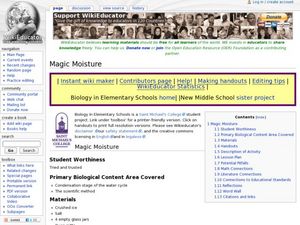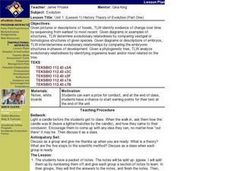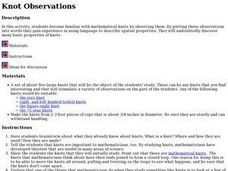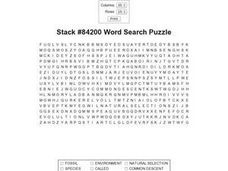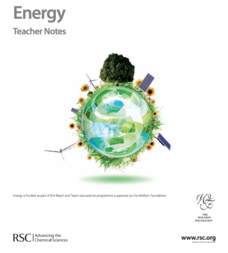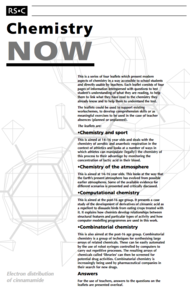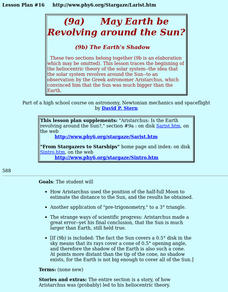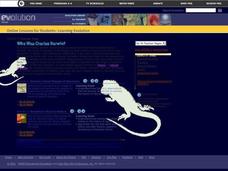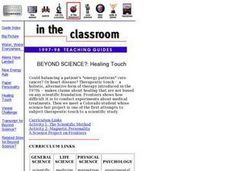Curated OER
Latitude
Students examine the theory of finding latitude and discuss the uses of an astrolabe, cross-staff and octant. They determine an Astronomical Table for their classroom.
Curated OER
La Belle Époque [1871-1914]:
Progress through various aspects of the "The Beautiful Era" in this presentation. Political, technological, and scientific contexts surround the time of innovation and change in the world landscape. The short length of this slide...
Curated OER
Magic Moisture
Students discover the process of condensation. For this experimental lesson, students hypothesize and conduct an experiment to determine where the water comes from during condensation.
Curated OER
Inventing and Presenting Unit 3: Persuasive Speaking and Invention Promotion
Students write a proposal for a speech. Students prepare appropriate visuals for use in the proposed speech. Students produce one or more graphs that summarize the results from the experimentation. Students deliver an effective speech in...
Curated OER
Charles Darwin
In this Charles Darwin activity, high schoolers fill in the blank with the correct answer. Students use the suggested text to complete statements about Charles Darwin, his expedition, and his development of his theory of evolution.
Curated OER
Robert Boyle's Informants
Students review and discuss the importance of Boyle's informants and how he sometimes relied on information from those with experience of the wider world to substantiate his scientific theories. They complete the worksheet, answering...
Curated OER
History Theory of Evolution
Students identify fossils. They identify evidence of change over time when given pictures of fossils to determine the proper sequencing. In addition, they determine evolutionary relationships by comparing embryonic structures.
Curated OER
Creeping Sheets of Ice
Students conduct scientific investigation in which they observe glacial
effects on landscape, develop and explain their own theories of how glaciers change land, and demonstrate understanding and explain basic motion and force principles.
Curated OER
Touring Through the Beginning of Earth
Students simulate the role of reporters and research two major theories on how the Earth was formed. They create and write a series of newspaper articles on the theories of beginning life on Earth for the newspaper's front page.
Curated OER
Math: Knot Observations
Students discover the importance of knots to mathematicians in developing scientific theories. In small groups, they examine knots and make obeservations about them. Students discuss the ways to distinguish knots and make lists of...
Curated OER
Age of Exploration
Students work individually or in a group researching a box compass using historical information on the uses of the compass as well as the scientific theories of the compass. They create a box compass and a water compass which are...
Curated OER
Stack #84200 Word Search
In this science worksheet, students locate and identify various vocabulary terms related to earth science and biology. There are 12 words located in the puzzle to find.
NASA
Raisin Bread Universe
What is the universal breakfast? The resource includes two activities, the first one observing oatmeal to understand the texture of the universe. Then, scholars measure raisin bread dough before and after it rises to represent the...
Curated OER
Spring
Students examine lichens in an outside field trip. Students explore the diversity of this organism and ask questions about them.
Discovery Education
Cushion It!
Sugar cubes, collide! Groups design protection systems using bubble wrap to protect sugar cubes from being destroyed by falling batteries in the STEM lesson. They consider how the experiment relates to collisions in real-world...
Curated OER
All in the Family: Calculating Cousins
Students view pictures of distant "cousins" to humans. They place them in order by their distance from humans. Students receive a packet of six pages featuring graphics and a cousins summary page. They work in groups to complete 5 cousin...
University of Texas
Lives of Stars
Stars exist from a few million years to over 10 billion years, depending on their mass. Scholars perform a play acting as stars to learn about their different life cycles. They develop an understanding of many of the fundamental concepts...
Royal Society of Chemistry
Energy—Gifted and Talented Chemistry
What has more energy than a room full of pupils after a fire drill? This lesson plan! Explore the changes in energy during different chemical reactions, discover why some reactions feel cold and others feel hot, and tackle the concept of...
Royal Society of Chemistry
Computational Chemistry—Chemistry Now
Can some plants make their own animal repellents? Science sleuths examine the properties of cinnamamide in pear trees using an case study about computational chemistry. The resource discusses how vital computers are to research, how...
Curated OER
May The Earth Be Revolving Around The Sun?
Young scholars trace the beginning of the heliocentric theory of the solar system--the idea that the solar system revolves around the Sun--to an observation by the Greek astronomer Aristarchus, which convinced him that the Sun was much...
Curated OER
Discovering the Structure of the Atom
Pupils investigate atomic and nuclear structure of matter by researching historical atomic theories. Students examine Rutherford's studies and discover that many scientific conclusions change over time as new data is collected.
Curated OER
It's the Slime Time
Students experiment to understand the basic concept of polymerization and to understand the dissolution theory. Student experiment with polymers to understand its behavior and the mechanical behavior of polymer networks.
Curated OER
Who Was Charles Darwin?
Students complete two activities to study Charles Darwin's Theory of Natural Selection. They read Darwin's journal from the voyage of the Beagle and look at the scientific ideas that influenced the development of his theory.
Curated OER
Beyond Science?: Healing Touch
Students apply the scientific method by building a "Proposal for Study." They label the Observation, Hypothesis, and Prediction columns. Students listen as the teacher introduces the alternative healing methods of therapeutic touch and...



![La Belle Époque [1871-1914]: PPT La Belle Époque [1871-1914]: PPT](http://content.lessonplanet.com/resources/thumbnails/292406/large/cgrmlwnvbnzlcnqymdeymtewoc0zmdqxni1ncdjpenquanbn.jpg?1414487063)
